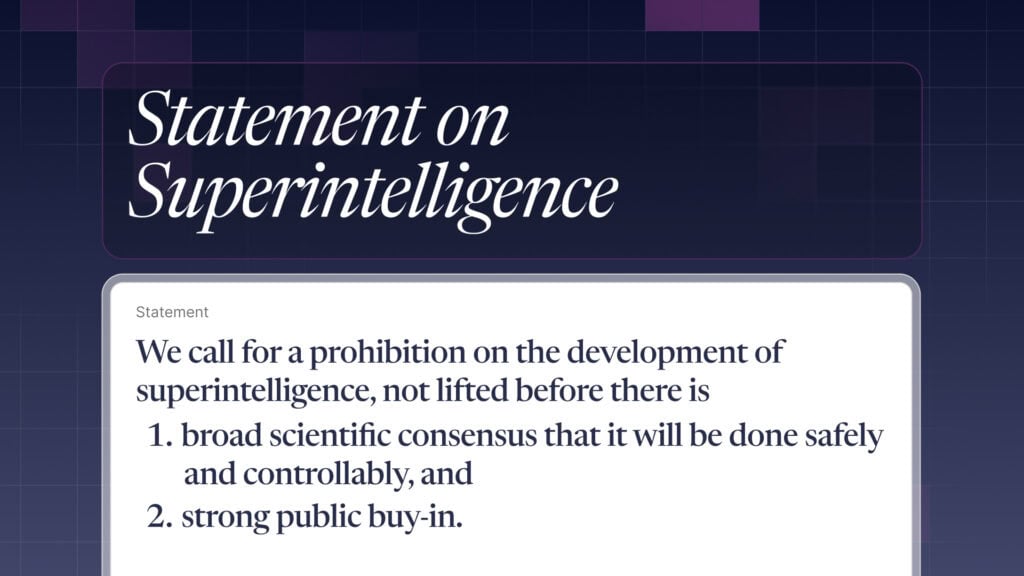Statement on the veto of California bill SB 1047
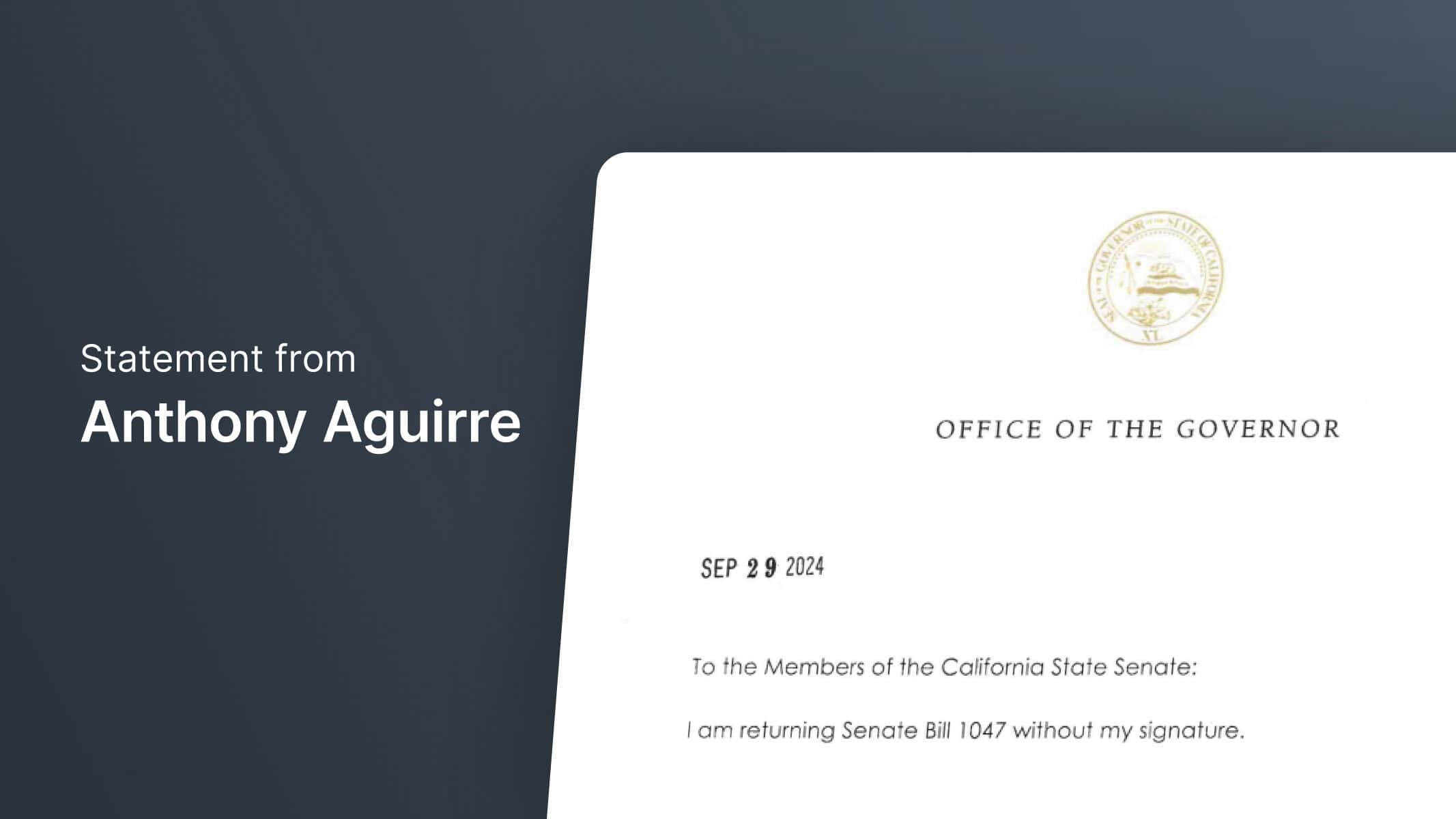
Contents
CAMPBELL, CA – Future of Life Institute (FLI) Executive Director Anthony Aguirre today released the following statement after Governor Newsom’s veto of California’s landmark AI regulatory bill, SB 1047:
“The governor’s veto of Senate Bill 1047 is incredibly disappointing. SB1047 simply aimed to hold the largest AI companies accountable to the voluntary commitments they have already made: to perform basic safety testing on these massively powerful systems in order to prevent catastrophic accidents or misuse. This veto leaves Californians vulnerable to the considerable risks caused by the rapid, unregulated development of advanced AI systems, including cyberattacks, autonomous crimes, and biological weapons. Furthermore, it imperils the incredible benefits that AI innovation can bring, by massively increasing the likelihood of an AI disaster which could shutter the industry.
“The furious lobbying against the bill can only be reasonably interpreted in one way: these companies believe they should play by their own rules and be accountable to no one. This veto only reinforces that belief. Now is the time for legislation at the state, federal, and global levels to hold Big Tech to their commitments and ensure AI systems are developed safely and responsibly.”
Despite overwhelming bipartisan support from the general public, civil society groups, lawmakers and AI experts, this bill was met with intense pushback from Big Tech and its representatives in academia. And even after substantive amendments to accommodate reasonable concerns, the industry continued to push out-of-date and easily falsifiable claims — often with clear financial and personal incentives.
We have created an SB1047 Explainer to address FAQs and debunk some common myths.
About the Future of Life Institute
The Future of Life Institute (FLI) is a global think tank with a team of 20+ full-time staff operating across the US and Europe. FLI has been working to steer the development of transformative technologies towards benefitting life and away from extreme large-scale risks since its founding in 2014. Find out more about our mission or explore our work.
Related content

Michael Kleinman reacts to breakthrough AI safety legislation

Context and Agenda for the 2025 AI Action Summit
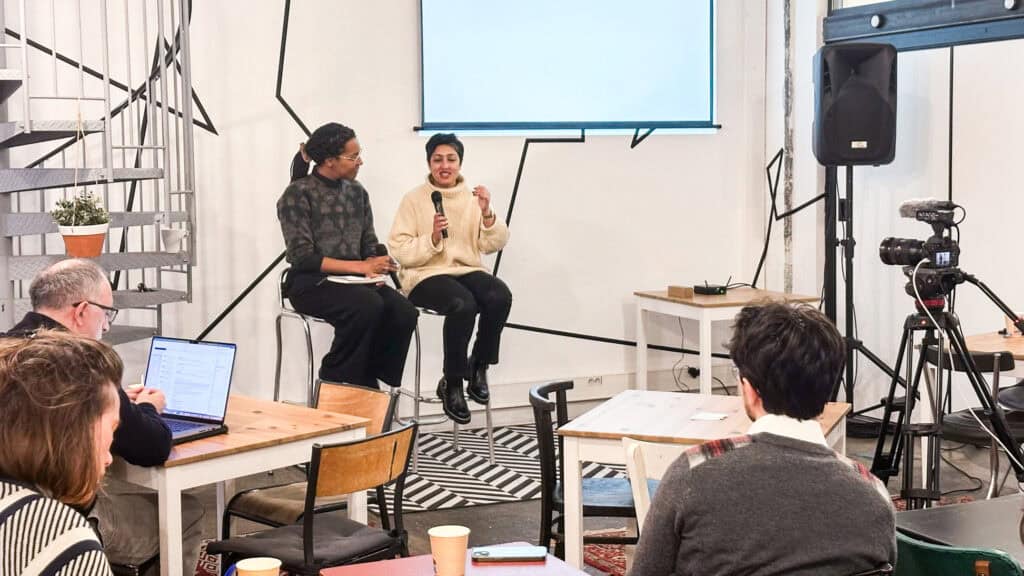
Paris AI Safety Breakfast #4: Rumman Chowdhury
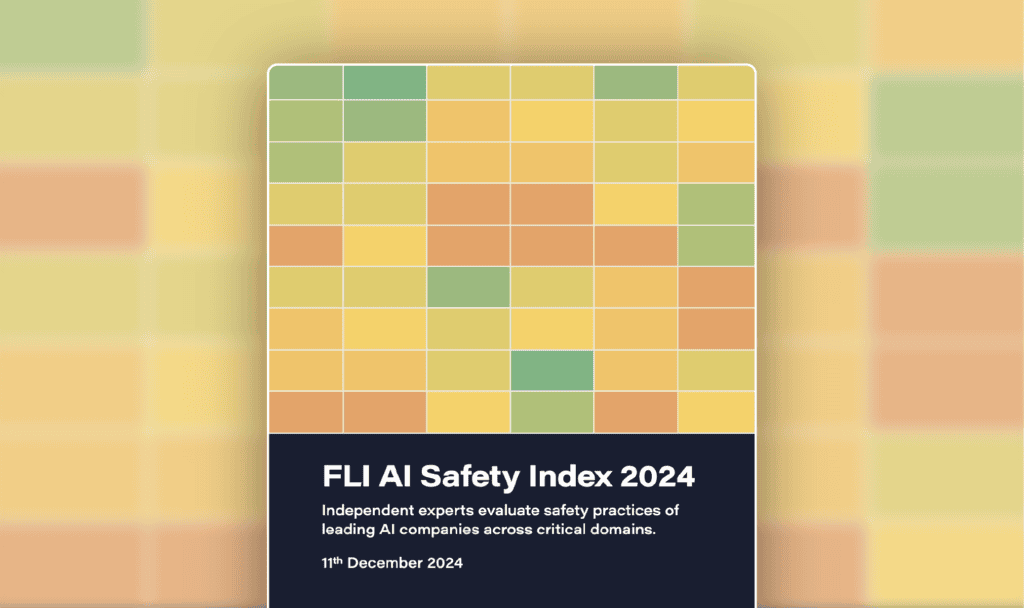
AI Safety Index Released
Some of our Policy & Research projects
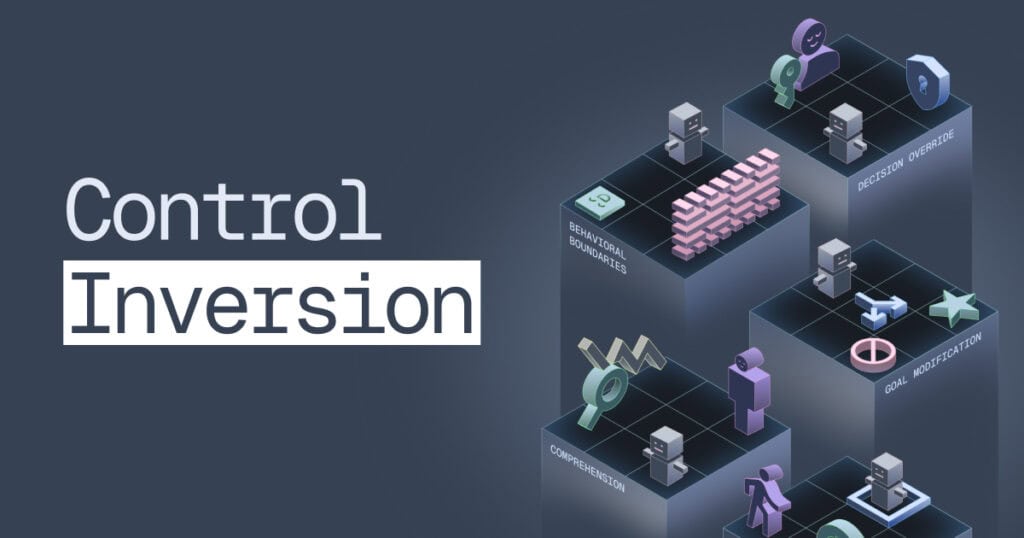
Control Inversion
